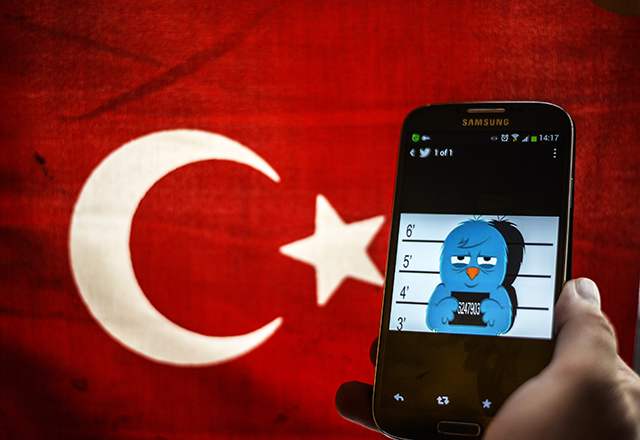Last week, the Turkish government of Prime Minister Recep Tayjip Erdogan became the latest regime to attempt to stem the social media Twitter tide.
What sparked this latest crackdown? Turkish Twitter users have been busy sharing inconvenient information about official corruption prior to this weekend’s municipal elections. In a broader sense, however, the move opens yet another front in the Erdogan government’s ongoing campaign to censor Turkish media, which has been building since 2006.
International condemnation of the Turkish move to ban Twitter was swift. European Commission Vice President Neelie Kroes tweeted that the ban was “groundless, pointless, cowardly,” and the U.S. State Department described the ban as “21st century book burning.”
Whatever you call it, the ban is unlikely to stop young Turks from trying to circumvent their nation’s increasingly draconian attempts at controlling political discourse and activism. Twitter played an important part in last summer’s demonstrations, which spread like wildfire from Geza Park in Istanbul throughout Turkey, as protestors vented deep frustrations with the Erdogan government and the brutality of the Turkish police. And this educated and globally connected generation will likely continue to push back against the regime’s continued war against freedom of expression.
Twitter and other social media have achieved an extraordinary prominence in Turkey. For one thing, social media serves as a substitute for other, traditional news outlets— government censorship has neutered most other media venues. In global media freedom surveys, Turkey repeatedly ranks as one of the least free countries worldwide. According to Reporters Without Borders, Turkey ranks 154th out of 180 countries in media freedom. The group describes Turkey as “one of the world’s biggest prisons for journalists.”
Another factor fueling this social media popularity is Turkey’s demographic mix. With a population whose median age is 29, Turkey is an ideal marketplace for social media. Furthermore, young Turks are savvy and integrated into the international community. They may face censorship at home, but they remain engaged with other youth cultures abroad.
All of these factors have combined to transform Twitter into an essential 140-character tool of Turkish democracy. Since the government announced the ban on Thursday, Turkish tweeters have worked overtime to find ways around it. We should help them, in the name of Internet freedom.





























